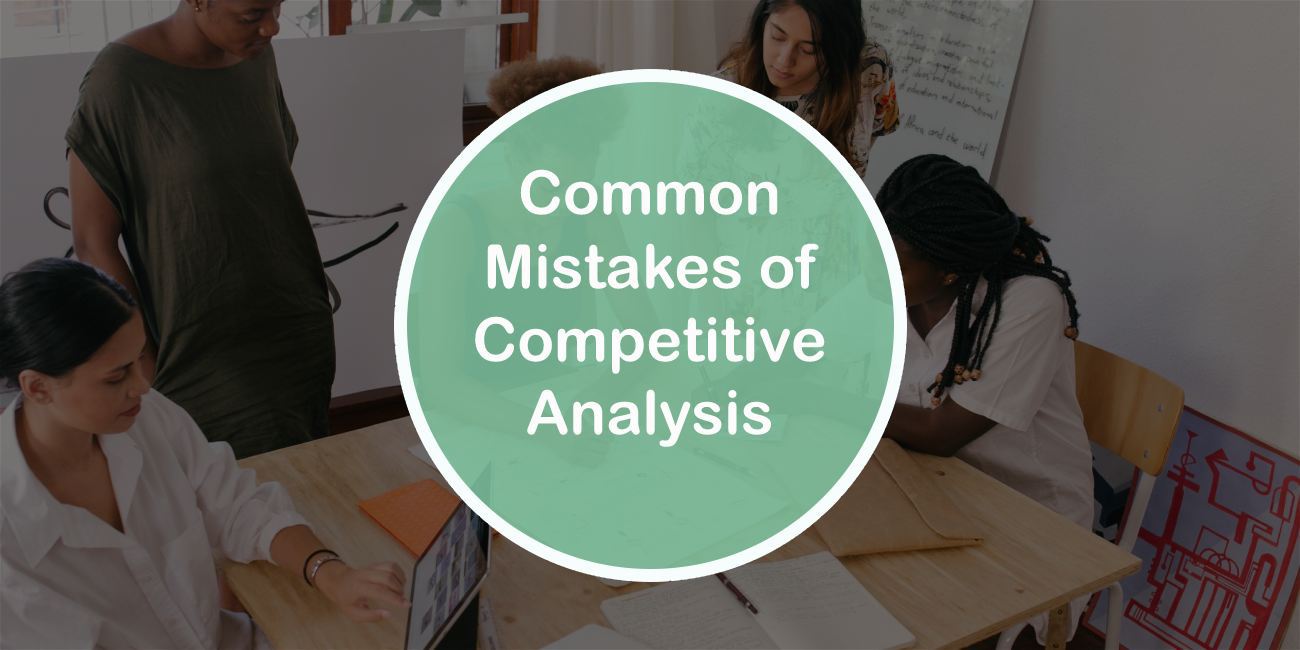Competitive analysis is part of any marketing strategy, but why does that strategy fail often? Generally, a competitive analysis can be time-consuming and labor-intensive work. Therefore, it’s important to ensure that it’s done effectively and efficiently. But why are those analyses useful after all?
The analysis process is probably the most important part of any marketing campaign.
You can collect a lot of data through #competitive analysis, but unless you're analyzing it effectively, it won't help you form #meaningful conclusions. Click To TweetAdditionally, if you aren’t analyzing data at all, you won’t have the chance to make improvements to your campaign. We will tackle a few of the biggest challenges and mistakes marketers make when evaluating their competitors.
1. Not knowing who your competitors
When we are asked who our competitors are, most of the time, we will address the big ones that we have been fighting for years. However, to better grasp the competitor landscape, you will certainly need to do a microanalysis. So, therefore, go product by product or service by service.
Every competitive analysis should include both the big and the small fish because you don’t want to let a small competitor grow and steal a piece of market share from you.
In addition, it’s also important to observe and consider who’s showing up in the search ranks. If a company isn’t well known, it doesn’t necessarily mean you should look at them as rivals. For example, a company may be less popular but still kill it in SEO and appear first in Google search results.
2. You never learn from your competitor’s mistakes
Each competitive research should inspire action and point out tactics you should avoid. For example, you should stay away from poor and risky link-building tactics and topics like politics and history on social media. You should always monitor your competitor’s mistakes and keep a list of them to know what will not work for you.
3. Not doing keyword research
Manually guessing what keywords your customers are searching for is always a waste of time. As a solution, you should always leave it to a premium keyword research tool like Google’s KeywordPplanner or tools like Semrush and Ahrefs, which will give you insight into the keyword search volume and other metrics.
Doing keyword research is not a one-time task. Therefore, always regularly monitor what keywords companies and websites show up for since search rank changes constantly. You can easily get lifted behind if no one tracks it and regularly makes website changes when needed.
4. You are not objective about your competitors
If people buy from your competitors, you can’t deny their presence on the market. You should never be subjective while evaluating your competitors. You must be objective enough to see what they are doing well.
For instance, they may post much interesting content on social media or elsewhere, or they constantly have sales and promotions. As a result, people like their content and share it across the platforms. Therefore, you need to admit that your competitors aren’t bad, and you need to work on providing better content than them.
This is one of the hardest mistakes to overcome. Nevertheless, it’s why many companies use automated tools or outsourced agencies for competitor analysis.
5. Never blindly follow competitors
You’ve won half the battle if you succeed in identifying your business’ and SERP competitors. But, there is a problem. What if your competitor’s marketing plan isn’t working at all? Would you still keep copying their strategy? If you do, it could be easily destructive for your business.
It’s crucial to closely examine each competitor’s web content, link profile, social media pages, and digital assets.
6. Never rely on the analysis of a few metrics
The data you get from the analysis must give you a complete blueprint of how your competitors perform on social media. Unfortunately, however, marketers often rely on only a few common metrics, which results in their strategy failure.
It is crucial to check all the metrics when conducting competitor analysis and carefully analyze the report’s aspects before concluding.




